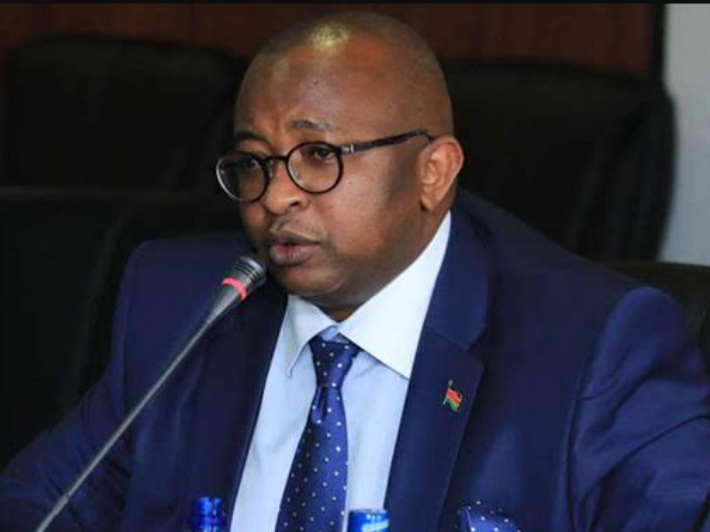Housing Principal Secretary Charles Hinga is currently under scrutiny following his recent claims at a public event in Kwale, where he announced the government’s intention to distribute a check worth Sh720 million to Jua Kali artisans from Kibra.
Skepticism looms over the actual benefits that these artisans will receive from the government’s initiatives.
The Jua Kali sector, which consists of informal artisans and small businesses, has historically faced numerous challenges, particularly concerning access to capital and government support.
Hinga’s announcement appears to be another instance of political maneuvering, with critics arguing that the funds may not genuinely reach the artisans on the ground.
Instead, it is alleged that the government is merely engaging in a strategy of robbing Peter to pay Paul, enriching select individuals in the process, rather than providing meaningful support to the community.
There are concerns that the funds will not effectively address the needs of the Jua Kali artisans, particularly given the ongoing struggles within this sector.
For years, many artisans have lamented the lack of real investment in their capabilities and businesses.
In many cases, the promises made by government officials translate into little more than empty words and PR stunts aimed at enhancing the government’s image rather than delivering tangible support to those who need it most.
Critics have pointed out that this may just be a public relations strategy to placate discontent among the artisans and the general populace.
Hinga’s department has been involved in various initiatives intended to uplift the Jua Kali sector, but the effectiveness of these initiatives remains questionable.
For instance, despite projects being set up to facilitate financing and contract opportunities for Jua Kali artisans, many still struggle to secure the capital necessary to participate fully in government projects.
There are allegations that Hinga’s ministry has been slow to act on previous commitments, resulting in a loss of faith among the Jua Kali community.
The perception that these initiatives are being poorly managed adds to the frustration, as artisans often find themselves without the resources they were promised.
Given these circumstances, many are calling for greater transparency and accountability in the management of funds allocated for the Jua Kali artisans.
There is a growing demand for the government to move beyond mere rhetoric and ensure that funds are not only promised but are also delivered and used effectively to improve the livelihoods of these workers.
While Hinga’s announcement may sound promising on the surface, the reality for many Jua Kali artisans is likely to be far less rosy.
It remains to be seen whether they will genuinely support the Jua Kali sector or if this is simply another chapter in a long line of unmet promises and disillusionment.





















Add Comment